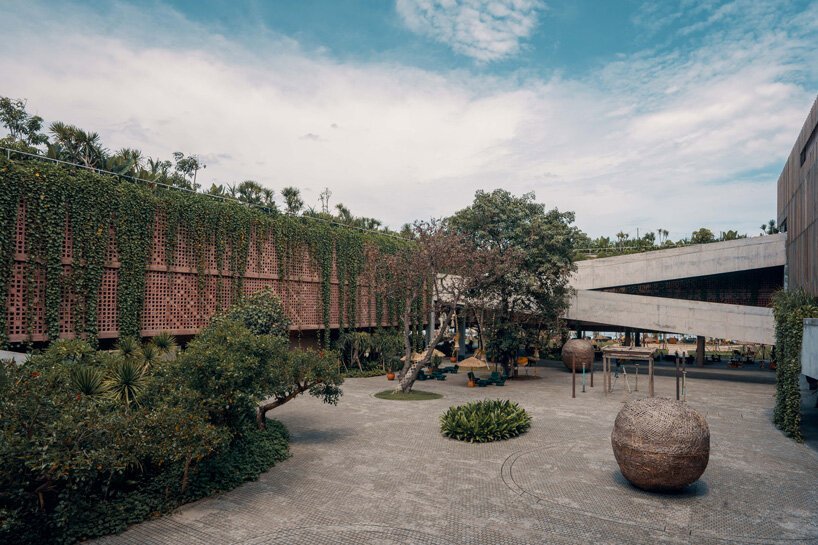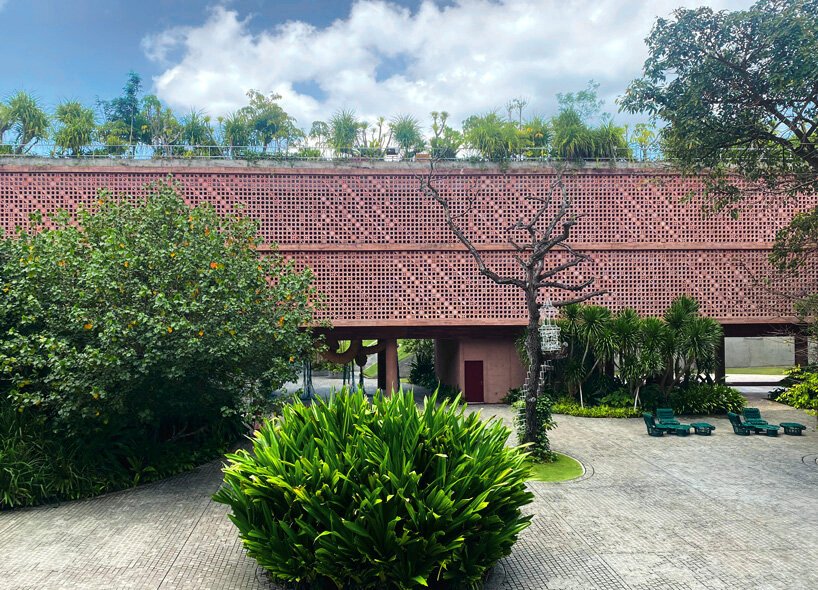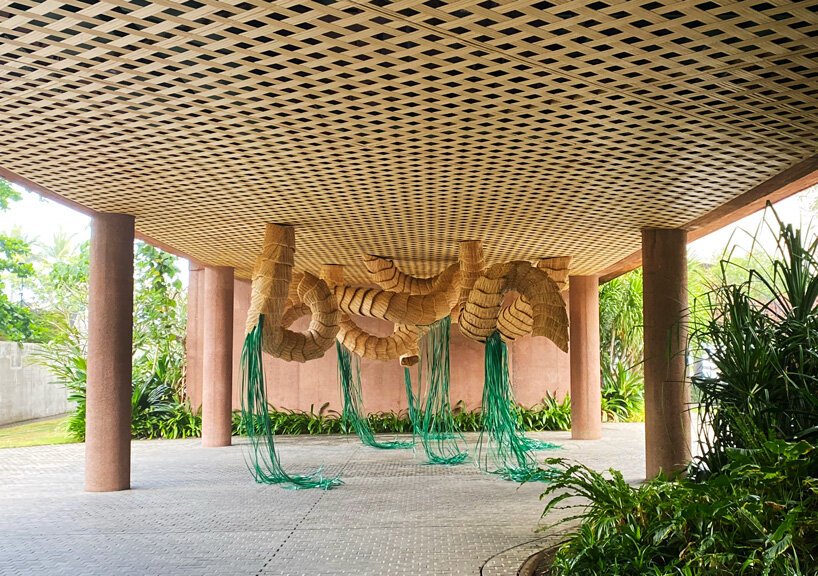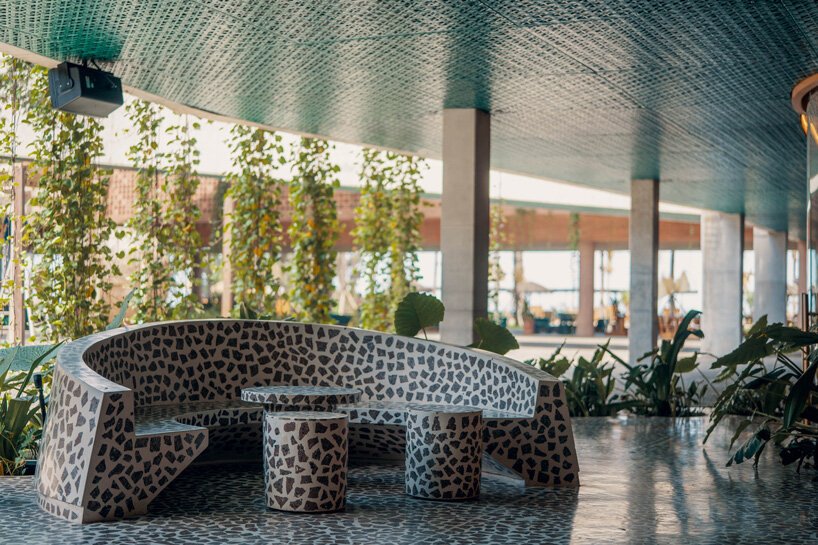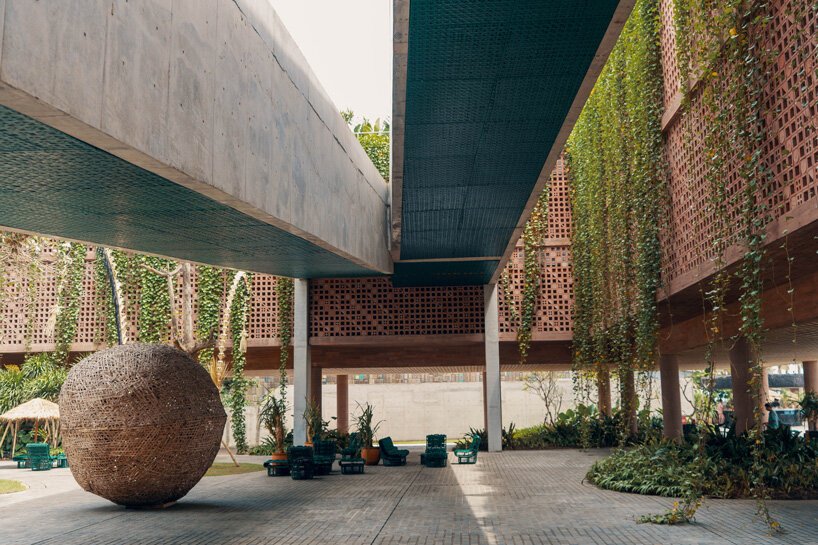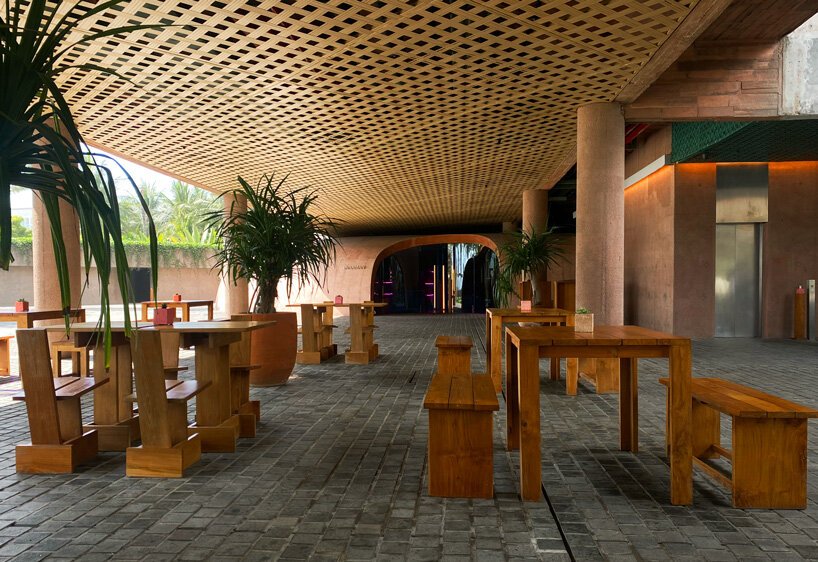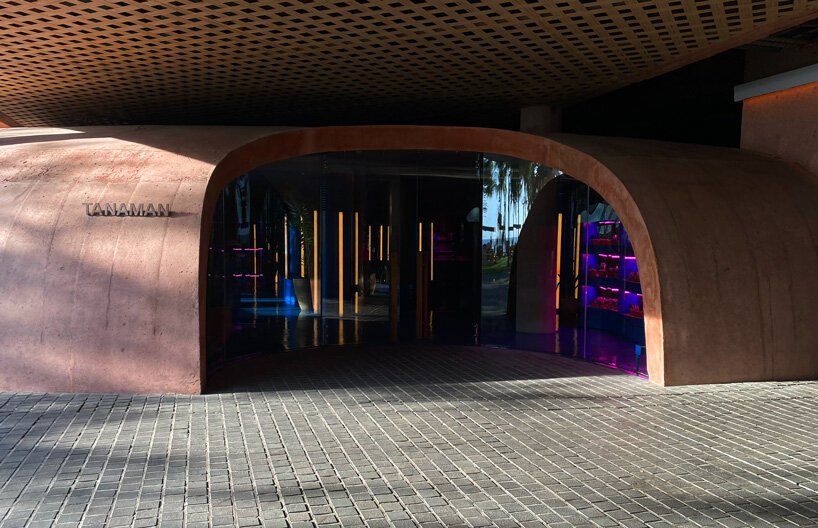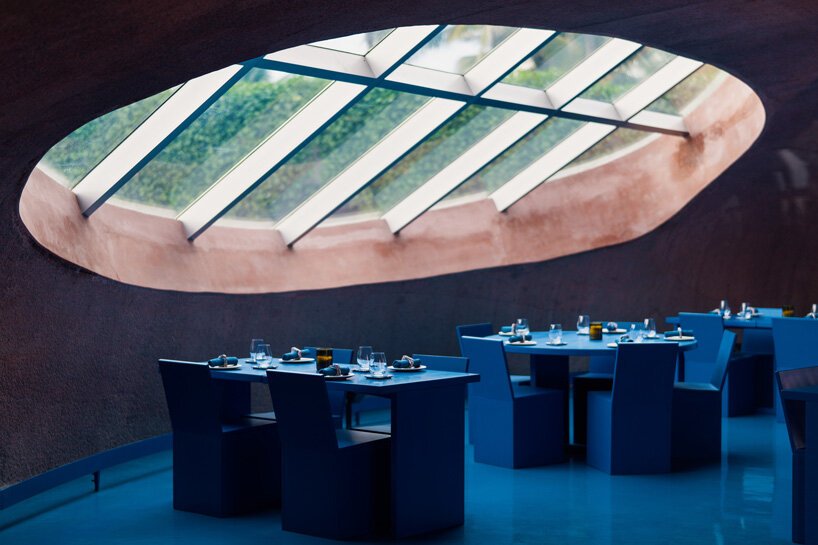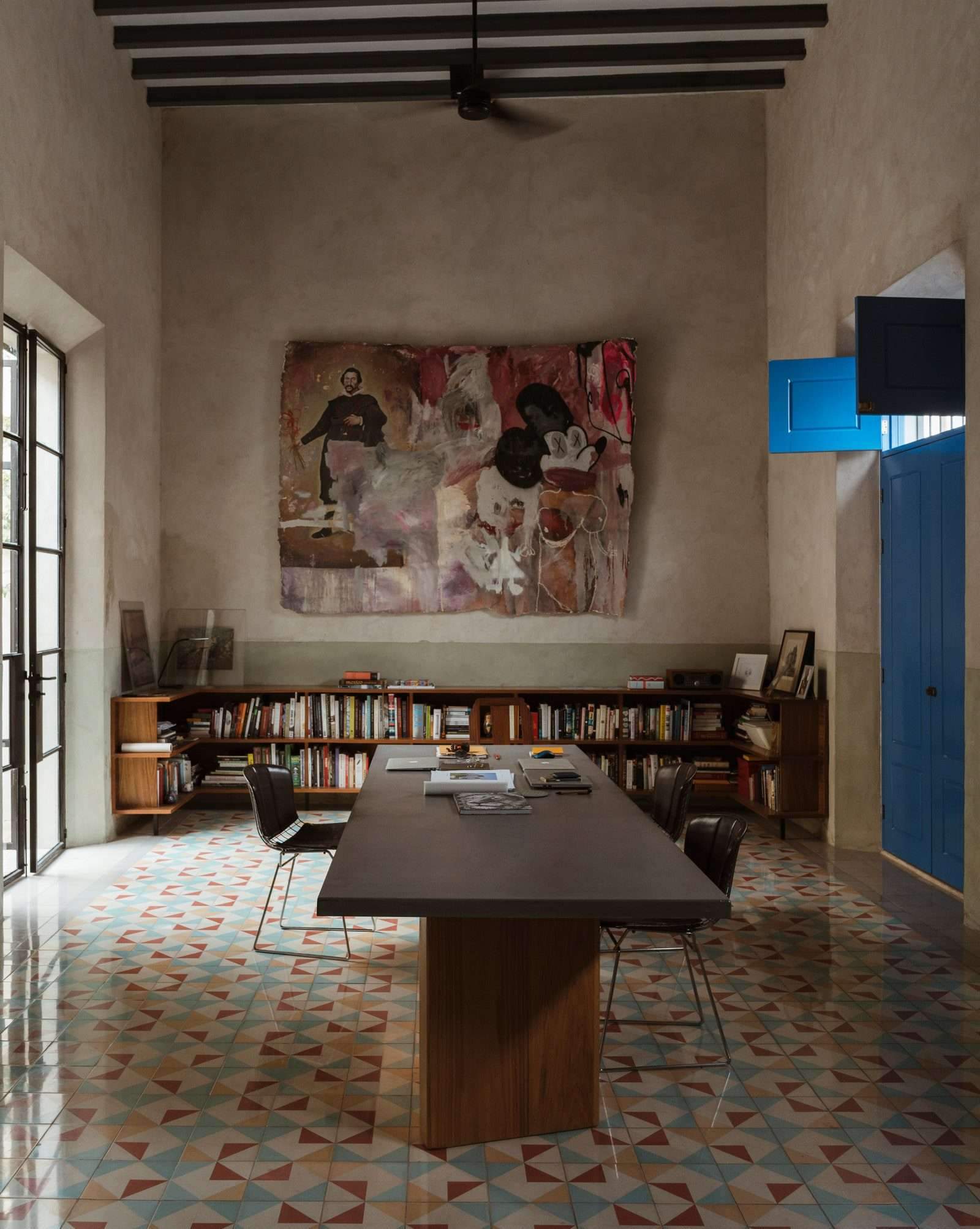desa potato head bali: the OMA-designed creative village championing regenerative tourism
DESA POTATO HEAD: GOOD TIMES, DO GOOD
Set on a sandy beach in Seminyak, Bali, Desa Potato Head is not your typical beachfront luxury resort. The carbon-neutral property, featuring the OMA-designed Potato Head Studios, unfolds as a creative village where music, art, design, food and wellness converge under a zero waste philosophy. Founded by Indonesian entrepreneur Ronald Akili, Potato Head holds the mantra ‘Good Times, Do Good’, a guiding principle that means that anything good that happens at the Desa should have a positive impact on the environment and on the local community. And although sustainability may be one of the most used (and abused) buzzwords by now, this resort actually makes good on its promise.
‘Waste isn’t waste until it ends up in a landfill,’ explains the Potato Head team as they have figured out a way to give almost anything that gets discarded at the property a new lease of life. And instead of doing everything behind closed doors, the team has set up their research and development design workshop in plain sight within the resort, so that guests and visitors can learn more and even participate in the processes. Named Sweet Potato Lab, the R&D workshop uses surplus materials from daily operations alongside waste collected from Bali to fabricate design objects and decor. At the moment and until December 25, Potato Head is also exhibiting its strategies of reuse and design projects at their ‘N*thing is Possible’ exhibition in Singapore.
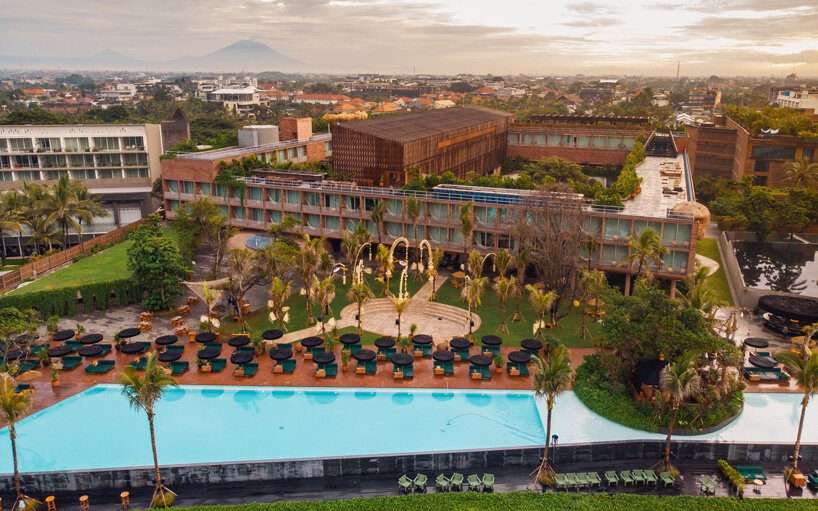
A CREATIVE VILLAGE BY THE BEACH IN Seminyak, Bali
Desa Potato Head is pioneering the transition from sustainable hospitality to regenerative hospitality, a new kind of tourism that encourages guests to experience a destination that deeply enriches both it, and them. Ronald Akili’s original Potato Head eatery in Jakarta grew into the Bali outpost over the past few years, which now includes multiple restaurants, the iconic Potato Head Beach Club and entertainment, as well as two boutique hotel concepts. Following Andra Matin’s design for the Potato Head Suites (formerly known as Katamama), the brand tapped OMA for the realization of Potato Head Studios, which now serves as the cultural heartbeat of the village. Led by David Gianotten, the project was developed together with Potato Head with a concept which subverts the conventional hotel typology by creating a space that is part of the local community. This latest addition takes shape as a seamless blend of concrete brutalism and vernacular architecture. Besides the 168 guest rooms, it offers a ground and top floors open for public events, parties, exhibitions and activities, while also housing many of the resort’s facilities.
‘You hardly see a resort where when you first come in you see people on the beach directly,’ explains the Potato Head architecture team. ‘Usually there’s a lot of separation for privacy. This allows a different dynamic where people can possibly interact in a different way. As far as the architecture, the building is elevated upwards to allow for that program to happen and to preserve the direct view of the water when you are first coming in. We built the Studios three years after the Katamama Suites. When we finished Katamama we had a lot of waste coming from the bricks and we didn’t know what to do with it. It was sitting in a pile until we could figure out a way to utilize it. The concrete that you see in the Studios is pink because it’s actually a mix from the Katamama bricks and a color enhancer to bring out that special hue.’
the building is elevated upwards to create an open, central courtyard | image by All is Amazing — Paulius Staniunas
DESIGN, ART, FOOD AND WELLNESS AT DESA POTATO HEAD
More than a place to visit or stay, Desa Potato Head immerses guests in its ever evolving universe of gastronomy, wellness, sustainability and community. The property includes a music recording studio, gallery, spa, sustainability workshops, curated library, listening lounge, co-working center, streaming station and six restaurants, including Ijen, the region’s first restaurant that leaves no ingredient unused (read more about it here).
Collaborations with artists and designers complete both public and private spaces at the Desa. Local artist Nano Uhero’s functional bamboo sculpture, ‘The Womb’, greets guests with the sound of gongs and a Balinese water blessing. At the beach club, ‘5,000 Lost Soles’ by German art activist Liina Klauss unfolds as a large-scale installation of flip-flops collected along the shores of Bali. The latest addition will be a series of sculptures by American graffiti artist Futura, made from repurposed waste materials collected from waterways. Objects and pieces of furniture by the likes of Max Lamb, Toogood Design, BYO Living and Andreu Carulla complete the resort’s common areas and guest rooms.
the courtyard serves as a centerpiece and flexible stage for a range of programs | image © designboom
‘Three Naga’ installation by Ines Katamso | image © designboom
the resort’s welcome area | image by All is Amazing — Paulius Staniunas
image by All is Amazing — Paulius Staniunas
image © designboom
Tanaman offers a multi-sensory dining experience | image © designboom
image by All is Amazing — Paulius Staniunas

